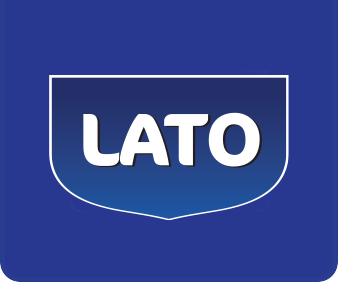25 Aug Lato Milk expands its footprint to Ethiopia, South Sudan and Malawi
Pearl Dairy Farms Limited (PDFL), are now exporting their range of milk powder products to Ethiopia, Malawi and South Sudan underpinned by the ratification of the Africa Continental Free Trade Area (AfCFTA) agreement.
are now exporting their range of milk powder products to Ethiopia, Malawi and South Sudan underpinned by the ratification of the Africa Continental Free Trade Area (AfCFTA) agreement.
With the expansion of these markets; Pearl Dairy products are now sold in over eight countries and growing. Algeria is next on the list of potential markets as the Government of Uganda works with the private sector to find more markets for Ugandan milk.
Bijoy Varghese, the Pearl Dairy Farms General Manager, said: “With the opening up of new markets, farmers in Uganda have been provided with a bigger outlet for their milk and this creates more opportunities for them. This expansion presents a great boost to the entire dairy value chain in Uganda considering the current situation in the sector. Pearl Dairy is also in a position to supply its world-class quality products to these markets.”
He said the company already has the necessary regulatory approvals from the targeted countries. In the initial phase, PDFL will export yoghurt and milk powder. This was decided after the company carried out conclusive market research that indicated these products will do well in the targeted markets.
Varghese said: “We have fully adhered to the norms and government compliances as stipulated in these markets and we confidently believe we have achieved all the requirements for us to launch in these countries.”
From its Mbarara factory in western Uganda, PDFL manufactures yoghurt, full cream powdered milk, skimmed powdered milk, instant full cream powdered milk, UHT milk, ghee, and butter oil. The plant has a daily capacity to process 800,000 litres of milk.
AfCFTA entered into force on May 2019. More than half of the African Union member states have subsequently ratified the agreement which is aimed at boosting intra-African trade by 52.3%, eliminating import duties, and to double trade if non-tariff barriers are also reduced. According to the World Bank, the AfCFTA is also expected to enhance competitiveness at the industry and enterprise level through the exploitation of opportunities for scale production, continental market access, and better reallocation of resources.
Milk production in Uganda continues to increase; and Pearl Dairy the largest dairy exporter is at the forefront of finding new markets for Ugandan milk across Africa and beyond. Varghese said the company was already in the process of looking out for other new markets for Uganda’s surplus milk.
“This was an expansion that PDFL had been planning. We are expediting the process so that the local farmers can benefit from this opportunity. With a strong backward integration program, based out of Mbarara, we are aligning with more and more farmers to fulfill the current and future demand. These opportunities will lead to the creation of jobs and better the livelihoods of the local farmers due to increased demand in exports,” Varghese said.

